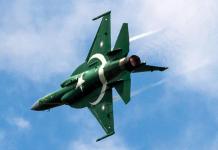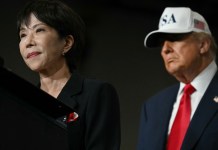Mahinda Rajapakse – the former President of Sri Lanka has been appointed as the new Prime Minister of Sri Lanka by President Sirisena. Mahinda Rajapakse was earlier defeated by a combined team of Maithripala Sirisena and sacked Prime Minister Ranil Wickremesinghe.
- India Will Get Full Access To Hambantota Port: PM Wickremesinghe
- Sri Lanka Again Upsets India Over Airport Deal in Jaffna
A private television televised Mahinda Rajapaksehim being sworn in as the new prime minister, replacing Wickremesinghe. There was no immediate word from Wickremesinghe, who helped Sirisena win the January 2015 elections against Rajapakse.
The surprise move comes after disagreements between Sirisena and Wickremesinghe over the economic policy and day-to-day administration of the government. The pair were reported to have clashed in cabinet last week over government plans to lease a port terminal to neighbouring India.
Wickremesinghe’s government came to power promising economic reforms and accountability for atrocities committed in Sri Lanka’s bloody civil war during Rajapakse’s presidency.
Earlier UNP had said that the President has no right to remove Prime Minister Ranil Wickramasinghe. Mangla Samarveera, UNP of the coalition government, tweeted, “The appointment of Rajapakse as the Prime Minister is unconstitutional and illegal, it is an anti-democratic coup.”
In the past few weeks, there was a tug of war between the Sri Lankan President and the Prime Minister to run the government. Recently, Sri Lankan President Sirisena rejected media reports claiming that he had accused the Indian intelligence agency of plotting to kill him.
The Sri Lankan President called Prime Minister Modi “a true friend” of Sri Lanka. They emphasized that they respect the coalition alliance for the common interests of the two countries. And to strengthen India-Sri Lanka’s relationship, they will work with Prime Minister Modi further. Meanwhile, BJP leader and Rajya Sabha MP Subramanian Swamy tweeted, “My friend Mahinda Rajapakse has just been sworn in as the Prime Minister of Sri Lanka.”
More News at EurAsian Times
- Is PM Modi Planning to Divide J&K into 3 Parts Before 2019 Elections?
- India Using Israel’s “Palestine Strategy” To Crush Rebellion in Kashmir?
- Saudi Money, US Weapons, Israeli Intelligence Fuelling Arab NATO – Iran
- Indian Army Knows The Exact Location of 12 Terror Launch Pads in Pakistan; But Can They Strike?




